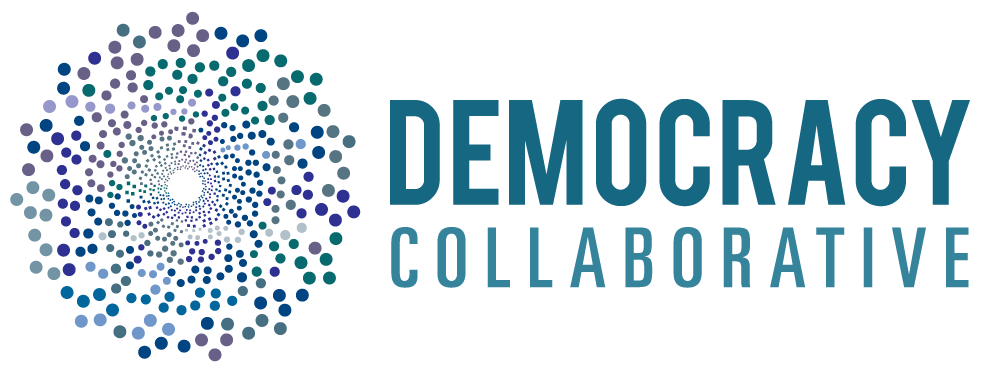TDC Glossary
Below are some terms commonly used (along with their definitions) here at The Democracy Collaborative.
Anchor Institution
Large public or non-profit institutions that are physically rooted in a specific geographic area and play a prominent economic role in their local communities. Examples of anchor institutions include: hospitals, universities, municipal governments, electric and water utilities, and museums, libraries, and other cultural organizations.
Instituciones anclas
Instituciones grandes que son públicas o sin fines de lucro y que están físicamente arraigadas en una área geográfica específica, jugando un papel prominente en la economía de comunidades locales.
Commissioning
The process by which goods and services are planned, purchased, and monitored by anchor institutions. Like procurement, commissioning should be conducted in a manner that makes community central to the process, prioritizing local enterprise that deliver social value and social goods.
Contratación
Un proceso en el cual las instituciones anclas activamente planean y monitorean la compra de bienes y servicios. Cómo la adquisición, [el proceso de commissioning] debe ser dirigido de una forma que involucra a la comunidad en el proceso y prioriza las empresas locales que brindan valor social al proceso.
Community Asset Transfer (CAT)
A process that allows a community organisation to take over publicly-owned land or buildings in a way that recognises the public benefits that the transfer will bring. CAT can be achieved in a number of different ways at the request of the community. A CAT should only relate to viable assets not already in productive public use, and is concerned with how best to democratically determine the better deployment of these assets in service of the community.
Transferencia comunitaria de bienes (TCB)
Proceso que permite que una organización comunitaria se apropie de tierras o edificios públicos de una forma que reconoce los beneficios públicos que la transferencia implicaría. La TCB se puede lograr de múltiples maneras a petición de la comunidad. Una TCB se debe tratar solamente de los bienes que no estén en uso productivo y se debe preocupar por cómo determinar–de forma democrática–el mejor uso de estos recursos en servicio de la comunidad.
Community Land Trust
Community-based non-profit organizations designed to ensure long-term community control and stewardship of land. CLTs can be used for many types of development (including commercial and retail) but are primarily used to ensure long-term housing affordability. Moreover, they are democratic institutions that are often governed by multi-stakeholder boards that can include residents, wider community representatives, and public officials.
Fideicomiso de suelo comunitario (FSC)
Organizaciones sin fines de lucro diseñados para asegurar el control comunitaria y gestión sostenible de las tierras a largo plazo. Los FSC pueden ser utilizados para varias formas de desarrollo (incluyendo lo comercial y las ventas por menor) pero por lo general se usan para asegurar la vivienda asequible a largo plazo. Además, son instituciones democráticas que suelen ser administradas por juntas diversas que representan múltiples actores e intereses de la comunidad, tales como los residentes, representantes de la comunidad, y oficiales públicos.
Cooperatives
Cooperatives are businesses governed on the principle of one member, one vote. There are several common types of co-ops (as well as hybrids—which combine more than one type), including cooperatives owned and operated by: the people working there (worker or employee-owned cooperatives); the people buying the co-op’s goods or services (consumer cooperatives); the people collaborating to process and market their products (producer cooperatives); and groups uniting to enhance their purchasing power (purchasing cooperatives).
Cooperativas
Las cooperativas son empresas gobernados por el principio de un voto por miembro. Hay varios tipos comunes de cooperativas (e incluso formas híbridas) como las cooperativas de trabajadores, de consumidores, de productores, y de compradores institucionales.
Procurement
Contracts for goods and services that an anchor institution can shift to worker-owned companies, local businesses with high-road labour practices, and/or women and minority owned businesses in order to deliver significant direct and indirect local economic and social benefits. Most often, this involves goods and services that are not (or cannot be) produced in-house by the anchor institution. But in some cases, it may include goods and services that could, ultimately, be produced in-house but are currently being outsourced to large, extractive corporations.
La compra
Los contratos de bienes y servicios de las instituciones anclas se pueden dirigir a las cooperativas, empresas locales que proveen trabajo digno, y/o los que emplean las mujeres y minoridades étnicas para producir beneficios sociales y económicos significativos tanto directamente como indirectamente en la comunidad local.
Social Enterprise
Social enterprises are defined in many ways, but typically are non-profit organizations that operate businesses in order to generate revenues, meet a social need, and fulfil their missions to serve or employ.
Empresas sociales
Las empresas sociales se pueden definir de varias maneras, pero por lo general son consideradas como organizaciones sin fines de lucro que administran empresas para generar ganancias, cumplir con necesidades sociales, y alcanzar su misión para servir la comunidad y/o proveer trabajo digno.
Social Value
A term used to describe the difference an organization or project can make to the community in which they are operating to achieve positive and sustainable impact with regards to social, environmental, and economic outcomes. When considering social value, anchor institutions and enterprise must look beyond the financial cost of a contract to consider how the services they commission and procure can improve the economic, social and environmental wellbeing of a community.
Valor social
Un término usado para describir el impacto positivo y sostenible en la comunidad que busca lograr una organización o proyecto con respeto a los resultados sociales, ambientales, y económicos. Cuando consideramos el valor social, las instituciones anclas y empresas tienen que ver más allá de los costos financieros de un contrato y considerar cómo los servicios que compran pueden contribuir al bienestar económico, social y ambiental de la comunidad.
